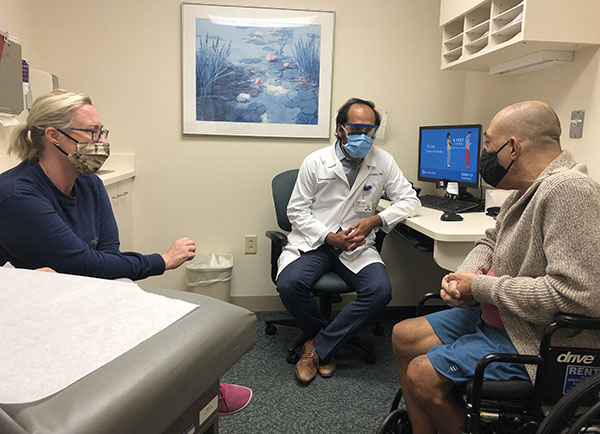
A Cleveland Clinic survey has found that just 52 percent of Americans reached out to a doctor or sought medical care after experiencing a concerning health issue during the COVID-19 pandemic. When it comes to patients with heart disease, that number increased to 63 percent.
According to the survey, many turned to the internet or friends for informal medical guidance, instead of a healthcare provider, even though 32 percent of Americans — and 53 percent of heart disease patients — reported feeling at least one troubling symptom during the pandemic like increased blood pressure, dizziness, shortness of breath or increased blood sugar.
The survey also found that concerns over contracting the virus are preventing people — especially heart disease patients — from seeing the doctor. Around 85 percent of Americans say they are concerned about contracting COVID-19 when seeking treatment for health issues at a doctor’s office. Another alarming finding: one in three heart disease patients have put off taking their heart medications during COVID-19.
“Heart disease continues to be an important heath problem for many Americans during the pandemic,” said Dr. Nazar Sharak, a cardiologist at the Cleveland Clinic’s Indian River Medical Center. “We are concerned that people may be avoiding treatment, which could lead to advanced disease. We encourage everyone to continue with regular screening and to see their cardiologist if they have symptoms or concerns.”
The most common appointments being put off include dental screenings, physicals, and blood pressure and cholesterol checks.
Weight gain and stress also rose to the top of the survey as a result of the pandemic, as 42 percent of Americans and 47 percent of heart disease patients have gained weight during the pandemic. Among Americans who gained weight, 25 percent gained more than 20 pounds. Three-quarters (76 percent) of Americans report feeling more stressed because of COVID-19, yet only about half (55 percent) know that stress can have a big impact on heart health.
Additional survey findings show that many Americans have misconceptions about how COVID-19 impacts heart health. For example, 61 percent of Americans are unaware that heart disease puts you more at risk for contracting a severe case of COVID-19, and 69 percent are unaware that hypertension adds increased risk as well. Also, 33 percent of Americans incorrectly believe you’re only at risk of long-term heart health effects from COVID-19 if you already have a pre-existing heart condition, and 25 percent incorrectly believe COVID-19 only affects your lungs, not your heart.
Not all of the survey results were negative. Some Americans have adopted new healthy habits during COVID-19, including taking vitamins or supplements (35 percent), exercising more (32 percent) and eating a healthier diet (30 percent).
The survey was conducted as part of the Cleveland Clinic Heart, Vascular and Thoracic Institute’s “Love Your Heart” campaign in celebration of American Heart Month. For more info., visit www.clevelandclinic.org/loveyourheart.







